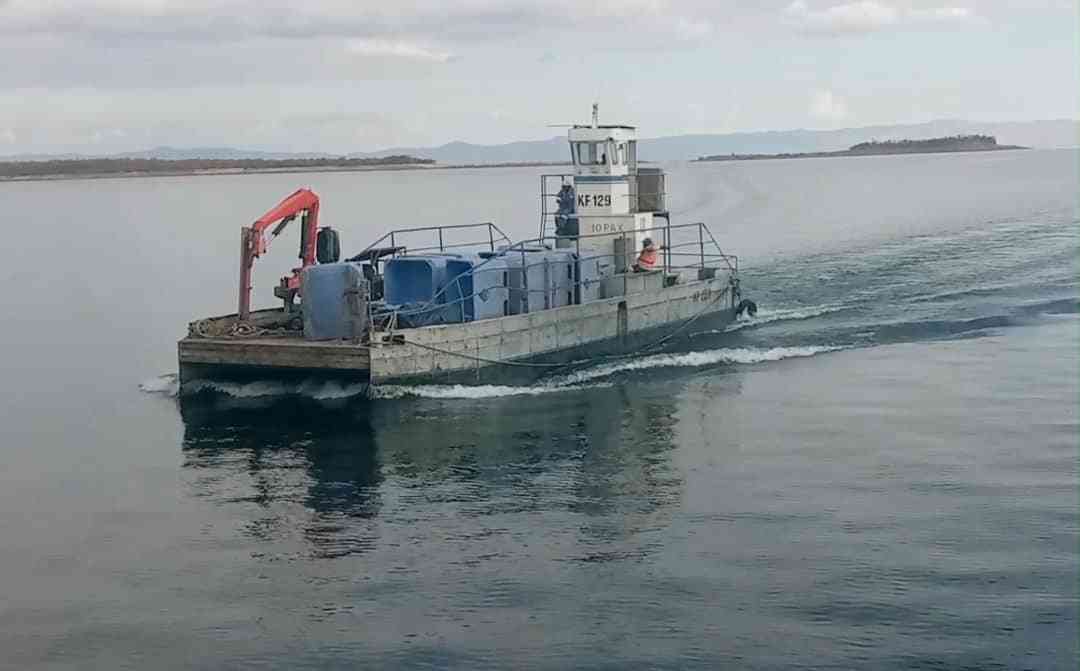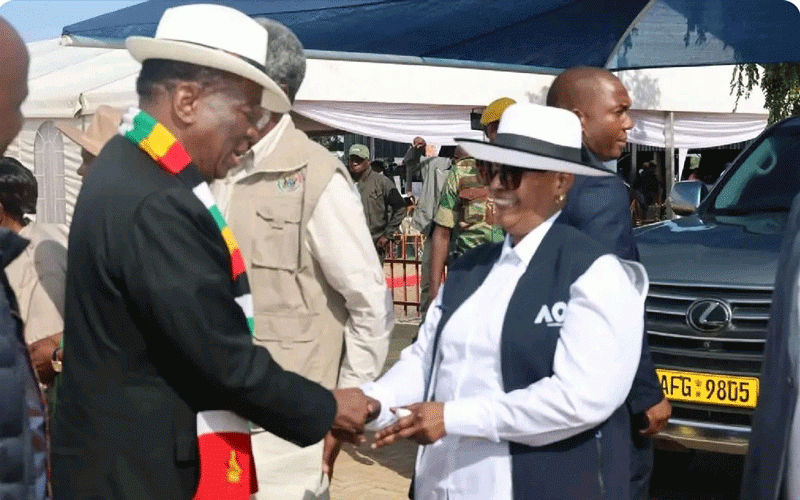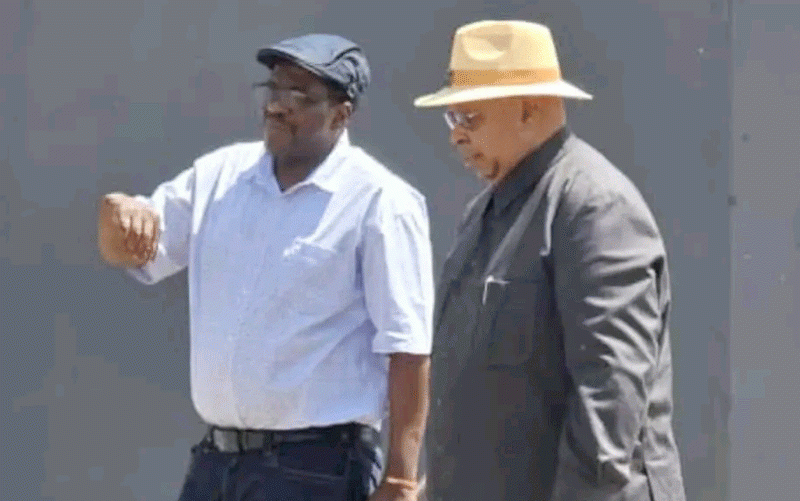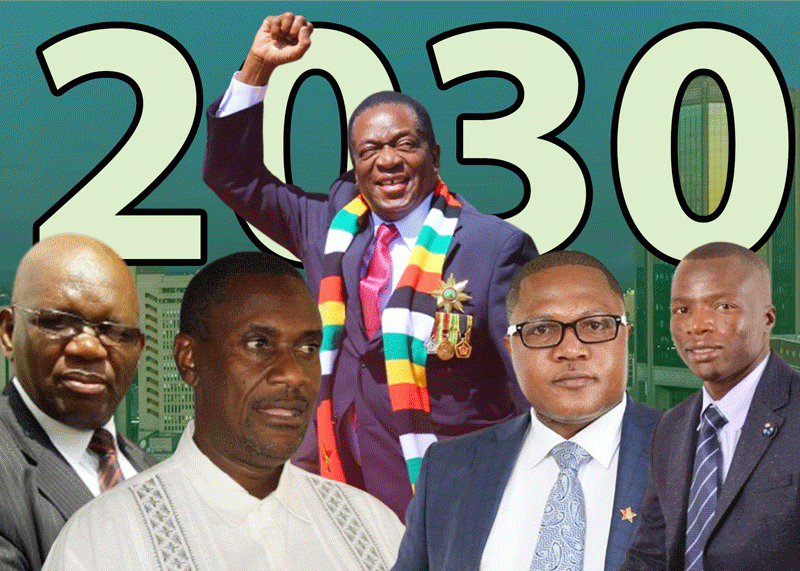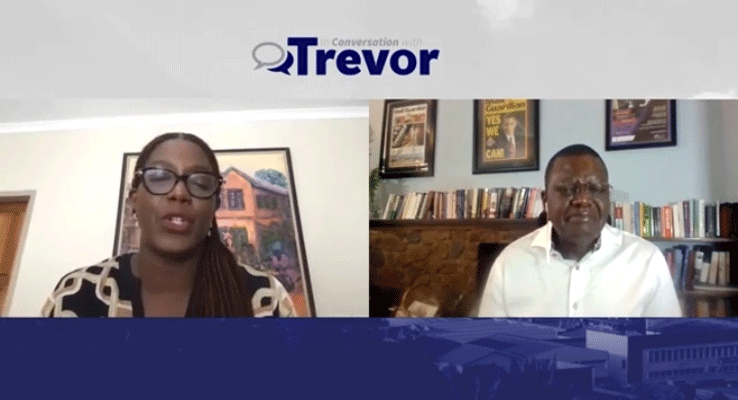
Leading Zambian entrepreneur Monica Musonda has spoken of how Nigerian billionaire Aliko Dangote inspired her to build a food processing giant from scratch.
Musonda (MM), a corporate lawyer and corporate governance expert, who founded Java Foods after working for Dangote, shared her journey on the latest episode of Alpha Media Holdings chairman Trevor Ncube’s In Conversation with Trevor.
Below are excerpts from the interview.
TN: Monica Musonda, welcome to In Conversation with Trevor, I am absolutely delighted to have you from Lusaka in Zambia. Welcome!
MM: Thank you for having me and inviting me. I am really happy to be here.
TN: Monica let’s just set the background, you are a qualified solicitor, you are a Zambian advocate with 16 years’ experience.
You qualified with a Bachelor of Law from the University of Zambia and a Master of Law from the University of London. You are a 2013 World Economic Forum Young Global Leader, you are a Desmond Tutu Leadership Fellow and then you suddenly decided to get into manufacturing.
We will get into that, but let’s start at the beginning. If we may, Monica, and the beginning is, I saw somewhere that you say when you were young, you were very independent-minded and fearless.
- Chamisa under fire over US$120K donation
- Mavhunga puts DeMbare into Chibuku quarterfinals
- Pension funds bet on Cabora Bassa oilfields
- Councils defy govt fire tender directive
Keep Reading
Tell me about your upbringing, Monica, the stuff that shaped who Monica is right now?
MM: So I grew up in Zambia. I am a daughter of professors and teachers, so I was always very inquisitive and curious and was fortunate enough to grow up in several places.
I actually grew up in the United States and then moved back to Zambia when I was about 10 or 11 and did the rest of my high school and university here.
But you see the formative years and also growing up in a household I did, you know, everything was, you could ask anything and you could do anything and really the only thing they wanted in a first-generation educated family was that you must finish school and sure my story is very similar to many, many people on the continent.
They were very focused on me getting skills whether you are going to be a doctor or a lawyer, you know, those sorts of things and very much encouraged me to do that.
But aside from that, they were very happy for me to being inquisitive to write. I call myself quirky because I used to climb trees.
I am the only girl in my family and I could do anything.
I was fearless because I wasn’t afraid to do anything.
I was encouraged and I was so thankful for that because this had an impact in everything I have done later on, in all the changes in my career.
I have lived in so many countries as an adult and as a professional because I was fearless and nothing held me back.
So I am really grateful for my upbringing, as I said it was in the US, but also in Zambia. So it is also important because I do know where I come from.
I have a background, I have family and it’s very important.
TN: You did work at the Attorney-General’s office in Zambia and one of the things that you were doing is the privatisation of state-owned enterprises.
I find that interesting particularly given where we are right now, the whole conversations are about how wasteful state-owned enterprises are.
What was your experience in that regard and looking back now, do you think the stuff that you did has remained unchanged?
MM: It was a really an important time for Zambia. It was a realisation that state-owned enterprises as they were then structured were not working for the economy.
I mean the economy in the early 90s was not functioning. There was really a lot of assets that were not working and corporate prices were really quite low.
So ( the late president Fredrick) Chiluba at the time then took advice and decided that this was the only way to actually bring investments in the country, investment of the right quality, of the right amount.
I mean you need quite substantial investments across the board in the economy, so he actually took advice, so the country was advised by some of the top advisors in the world, both on the legal strategy, on the acquisition side and negotiation.
So we had a really great team and it was a very interesting time for Zambia because everybody knew that this was the way forward and they knew there was a policy, there was a total buy-in into Zambian privatisation at that time.
Perhaps if you remember ZCCM, which was the conglomerate for the mines, I think the only thing was about: Should we break up the mines or should we sell it as a whole?
And at the time they thought the best thing to have done was to sell it, to break it up basically.
The only downside to privatisation, which we feel now is the fact that we excluded or did not bother to sell the assets to Zambians.
So the focus was really very much on bringing an investor from Japan, Canada, the US and South America who are very good in certain areas.
We had the best of the best in the early 90s in terms of investors in Zambia.
I mean from various parts of the world as opposed to now where we have quite a lot of Chinese investments.
So very different when we did the privatisation and I think the biggest issue as Zambians now is: Why did we not try to privatise some of the assets maybe strategically to support Zambian industrialists at the time to acquire those assets?
So the problem now, you see, is that we start from zero and the landscape is no longer competitive because people will access very cheaply and then we will start having to start from scratch.
So I think that’s the only criticism, but I think they tried very much and it really brought a sense of private sector involvement in the economy, which was needed.
TN: Monica, you actually go out and did something completely different and actually crazy.
I mean from being a lawyer, a corporate expert, having worked at the International Finance Corporation (IFC) and those blue-chip companies, you decide in 2012 that you are going to start Java Foods.
When was the first time that thought crossed your mind as you were with IFC, with (Nigerian billionaire Aliko) Dangote, in Johannesburg?
MM: So actually it came from many trips when we came to Zambia with Mr Dangote. He is an investor in Zambia.
We used to come here a lot for due diligence and stakeholder management and I remember him always asking me, each time we came, he said: Where are the Zambians.
Like where are Zambian businesspeople?
And as you know for many people who might know Zambians, it is very well run by multinationals or people who are not necessarily Zambians, the big players in the private sector.
He really got mad questioning: Why are you people just employees, why don’t you guys start, why don’t you run your economy? And actually, perhaps naively so, I just thought that would be easy, you know.
I really felt I hadn’t lived in Zambia for so long, remember.
So I had left Zambia in 1996.
I was still living abroad working for other people and my parents were now back in Zambia, had retired in Zambia and I would come out, look around and see things and Zambia was doing relatively well at that time and I was like: Why am I not a part of this wealth, why am I living and working for someone when I could be doing this for myself and my own country?
So I decided to make the move, (but) it wasn’t that easy move. They didn’t want me to leave. I had very, very good experience and a great job in Nigeria.
But when they heard what I wanted to do, they were very encouraging.
So I didn’t know what I was going to do.
Trevor, always I knew that I wanted to do something in Zambia, which had impact.
I wanted to build a Zambian brand, something that people would say, yes this is a Zambian brand.
The same way you have Econet for everyone that is a Zimbabwean, a Zimbabwean company.
In my mind, that was what I was looking to build and I had to do a bit of work and I had to decide where I wanted to play and I thought that food processing, manufacturing was where I thought I had the skills and I could build something. It was a lot quieter than I thought, actually.

